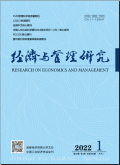经济与管理研究2024,Vol.45Issue(6):3-18,16.DOI:10.13502/j.cnki.issn1000-7636.2024.06.001
横向生态补偿能缩小城乡收入差距吗?
Can Horizontal Ecological Compensation Narrow the Urban-rural Income Gap?
摘要
Abstract
After more than a decade of exploration and practice,the pilot scope of horizontal ecological compensation in China is expanding year by year.Therefore,it is of great practical significance to accurately analyze the impact of the horizontal ecological compensation system on the urban-rural income gap in compensated areas. Using China's county panel data from 2007 to 2019,this paper employs a multi-period difference-in-differences model to empirically reveal that horizontal ecological compensation in cross-provincial watersheds can reduce the urban-rural income gap.The mechanism analysis indicates that it reduces the urban-rural income gap by optimizing the labor force structure.The heterogeneity analysis shows that it can narrow the urban-rural income gap in areas with lower income levels for rural residents and low industrialization levels.As the number of policy rounds increases,the effect of horizontal ecological compensation in narrowing the urban-rural income gap will be enhanced,and the policy effect will be more significant in areas where the central government provides matching funds.In addition,horizontal ecological compensation in cross-provincial watersheds exerts a stronger positive impact on the per capita disposable income of rural residents. Compared to existing research,the possible marginal contributions are in three aspects.First,from the perspective of data,this paper utilizes county-level data to enhance the accuracy of dividing the treatment group and the control group in a more microscopic way.Second,from the perspective of research subjects,this paper examines all implemented cross-provincial watershed horizontal ecological compensation agreements,yielding applicable and generalizable research findings.Third,considering income levels of rural residents,regional industrialization levels,rounds of policy implementation,and the provision of supporting funds by the central government,the heterogeneity analysis can help better understand the relationship between horizontal ecological compensation in cross-provincial watersheds and the urban-rural income gap.It also provides empirical evidence for further optimization and adjustment of the horizontal ecological compensation system in cross-provincial watersheds. Based on the conclusions,this paper draws the following policy implications.First,it should consolidate the existing achievements and actively address the shortcomings,establish a sound horizontal ecological compensation system,broaden the sources of compensation funds,and explore market-oriented and diversified compensation mechanisms.Second,it should fully leverage the guiding role of fiscal funds to drive the development of green industries and simultaneously coordinate and integrate compensation policies.Third,it should pay attention to the heterogeneous impact of cross-provincial watershed horizontal ecological compensation and provide institutional guarantees for the efficient implementation of ecological compensation agreements.关键词
横向生态补偿/城乡收入差距/就业结构/农村居民可支配收入/工业化Key words
horizontal ecological compensation/urban-rural income gap/employment structure/disposable income of rural residents/industrialization分类
管理科学引用本文复制引用
张益豪,郭晓辉..横向生态补偿能缩小城乡收入差距吗?[J].经济与管理研究,2024,45(6):3-18,16.基金项目
国家社会科学基金青年项目"人口老龄化对中国财政政策效果的影响机制和应对"(22CJY022) (22CJY022)

